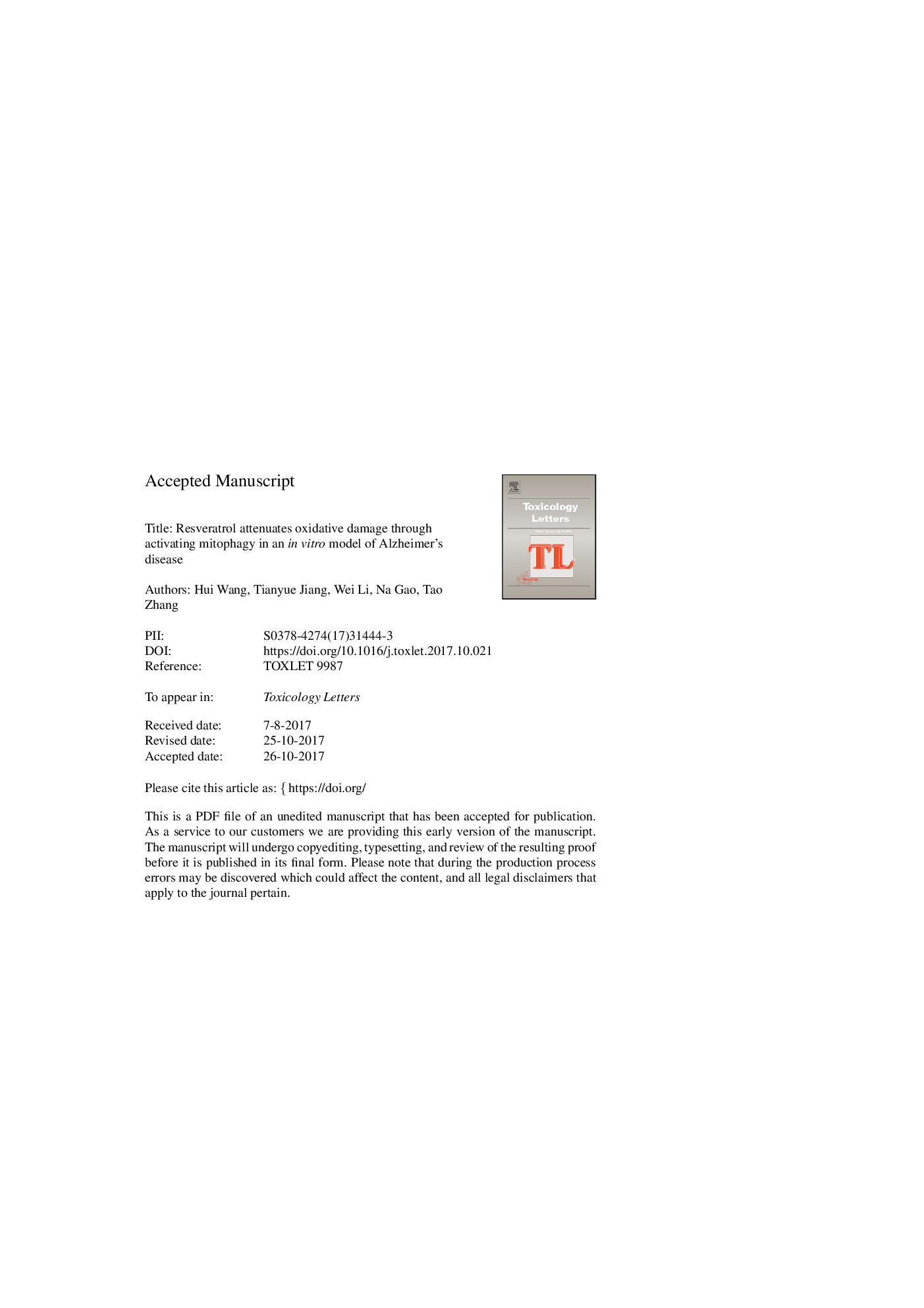| Article ID | Journal | Published Year | Pages | File Type |
|---|---|---|---|---|
| 8553550 | Toxicology Letters | 2018 | 30 Pages |
Abstract
Alzheimer's disease (AD) is a chronic neurodegenerative disease, which is characterized by the extracellular deposition of β-amyloid (Aβ). Previous studies reported that resveratrol, a natural herbal compound isolated from grapes, could alleviate the development and progression of AD. However, the underlying mechanism is still unclear. In the study, amyloid beta-peptide1-42 (Aβ1-42) -treated the differentiated rat pheochromocytoma cell line (PC12) was chosen as an AD cellular model. Our data showed that resveratrol attenuated Aβ1-42-induced cell death and significantly enhanced mitophagy including an increase in acidic vesicular organelle number, LC3-II/LC3-I ratio, Parkin and Beclin-1 expression, and LC3 and TOMM20 co-localization in Aβ1-42-treated PC12 cells. However, 3-MA remarkably inhibited resveratrol-induced mitophagy. Resveratrol reduced apoptosis, decreased oxidative status and alleviated mitochondrial damage in Aβ1-42-treated PC12 cells. However, all of the protective effects were significantly blocked by 3-MA, suggesting that mitophagy was considerably involved in the neuroprotective effects of resveratrol via decreasing oxidative status. Our study suggests that mitophagy pathway may become a new targeted therapy to attenuate neuronal damage induced by AD.
Related Topics
Life Sciences
Environmental Science
Health, Toxicology and Mutagenesis
Authors
Hui Wang, Tianyue Jiang, Wei Li, Na Gao, Tao Zhang,
